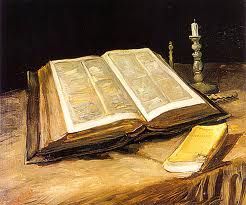 By the war years, white Baptists’ profession of belief in a literal Bible has become the norm throughout the South. As such, critics of a literal biblical interpretation, whether they be Christian or not, are often refuted and scoffed at by Southern Baptist divines. Many such critics are abolitionists, while others are learned individuals who have embraced modern scientific thought that is increasingly at odds with literal biblical interpretations. Most Civil War-era Southern Baptists are certainly not aware that a primarily literal approach to biblical interpretation is largely a modern dynamic that traces its roots to the Reformation. Nor would they care.
By the war years, white Baptists’ profession of belief in a literal Bible has become the norm throughout the South. As such, critics of a literal biblical interpretation, whether they be Christian or not, are often refuted and scoffed at by Southern Baptist divines. Many such critics are abolitionists, while others are learned individuals who have embraced modern scientific thought that is increasingly at odds with literal biblical interpretations. Most Civil War-era Southern Baptists are certainly not aware that a primarily literal approach to biblical interpretation is largely a modern dynamic that traces its roots to the Reformation. Nor would they care.
The war ravaging the South is no reason for white Baptists to let down their guard regarding biblical truth. Indeed, white Southern Baptists’ defense of the institution of African slavery depends upon a literal biblical interpretation. Sort of. Not including the Curse of Ham primary argument for the enslavement of blacks creatively derived from Genesis 9, a scriptural passage which does not actually mention black people. But little matter.
True to the form of a people whose is faith dependent upon a literal Bible, this week’s North Carolina Baptist Biblical Recorder features an editorial condemning “infidels” — whether Northern abolitionists or European biblical scholars — who attempt to “destroy” a literally-interpreted Bible.
Undoubtedly, the real aim and design of non-literalists is to destroy faith in the Bible and the religion which it teaches. Such would clearly be the result of the general acceptance of their teachings. An eloquent writer thus reveals the folly of non-literalists:
Destroy this volume, as the enemies of human happiness have vainly endeavored to do; and you render us profoundly ignorant of our Creator; of the formation of the world which we inhabit; of the origin and progenitors of our race; of our present duty, and future destination; and consign us, through life, to the dominion of fancy, doubt and conjecture. Destroy this volume; and you rob us of the consolatory expectation excited by its predictions, that the stormy cloud which has so long hung over a suffering world, will at length be scattered and a brighter day succeed;–you forbid us to hope that the hour is approaching, when nation shall no more lift up sword against nation; and righteousness, peace, and holy joy, shall universally prevail; and allow us to anticipate nothing, but a constant succession of wars, revolutions, crimes, and miseries, terminating only with the end of time. Destroy this volume; and you deprive us, at a single blow, of religion, with all the animating consolations, hopes and prospects which it affords, and leave us nothing but the liberty of choosing,–miserable alternative!–between the cheerless gloom of infidelity, and the monstrous shadows of paganism. Destroy this volume; and you unpeople heaven; bar forever its doors against the wretched posterity of Adam; restore to the king of terrors his fatal sting; bury hope in the same grave which receives our bodies; consign all who have died before us, to eternal sleep, or endless misery; and allow us to expect nothing at death, but a similar fate. In a word, destroy this volume; and you take from us, at once, every thing, which prevents existence from becoming, of all curses, the greatest. You blot out the sun; dry up the ocean; and take away the atmosphere of the moral world; and degrade man to a situation, from which he may look up with envy to “the brutes that perish.”
The world thus preferred by many Southern Baptists is one of white and black … in that order.
Sources: see David M. Goldenberg, The Curse of Ham: Race and Slavery in Early Judaism, Christianity, and Islam, Princeton University Press, 2003; “Folly of Infidels,” Biblical Recorder, January 30, 1864 (link)


